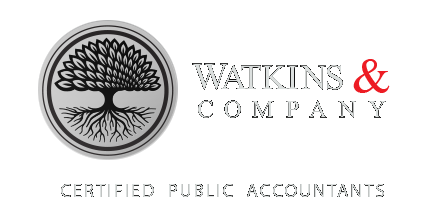IN HOUSE PAYROLL OR PAYROLL PROVIDER?

Payroll is an important part of your business but running payroll in house can be a risky endeavor. The main message here is to be careful and to make sure that you know what you are doing. Here are 4 things to keep a look out for if you should choose to run payroll for yourself.
- Loss of time – Do you KNOW what you are doing? Do you REALLY know what you are doing? It is true that you can buy programs (like QuickBooks) to run your own payroll but they cannot do everything for you. If you do not have some support from a professional then you can go months or even a year before you find out that you are doing something wrong. If you are not 100% sure of what you are doing then odds are you should not be doing it by yourself. The IRS (these days) does not reconcile payroll filings until 12-18 months after the close of the calendar year. Do you have a ticking time bomb on your hands? In many cases payroll processing in house is a distraction from what makes your business successful. If you were not responding to IRS letters then you could be increasing your revenue.
- Loss of money – Taxes are confusing! The complex tax laws, many deadlines and confusing forms make it very easy to make mistakes. Often times the penalties and interest for making mistakes can cost far more than getting some help. In severe cases that penalties can be equal to the amount of the tax. In other words if the tax you owed was $2,000 then the penalty itself could be $2,000. Be very careful. An experienced payroll provider is generally not as costly as you might think and can keep you out of a lot of trouble, pain and anguish.
- Loss of Trust – Do your employees trust you? They may not trust you for long if you mishandle their payroll checks. While payroll is a basic function of a business it is also not a simple process. An employer is required to handle garnishments for employees, withhold money from their check and then distribute that money to the correct destination. Furthermore, most people scrutinize their paychecks. Are your paychecks correct? Do you know the current tax laws? Do you know how to explain them to your employees? If you cannot answer yes to these questions then you could run off some of your most valuable assets – your employees.
- Loss of your business – You can lose your business due to really aggressive IRS collection tactics for past due payroll taxes. When it comes to payroll tax debt, the IRS collection Revenue Officer has more power than you might think. They can lock your front doors and close your business without obtaining a court order. They can seize your property. They can contact your customers and intercept funds through their levying authority. You must take immediate action to deal with a payroll tax issues, or you will find yourself serious trouble.
The IRS is focusing increased tax compliance efforts on small businesses so it is important to know the common payroll tax audit triggers and learn how to avoid severe IRS penalties. Small business owners have been identified by the IRS as the largest source of uncollected taxes. Small businesses are the most likely target of increased tax compliance enforcement. Because small business owners are known to be tax evaders, the IRS tends to focus their enforcement efforts on small businesses.

PAYROLL PROVIDER RIDGELAND MS
Payroll tax penalties can add up quickly and create enormous tax debt. The penalties assessed on delinquent payroll tax deposits or filings can dramatically increase your total tax bill. There are three main penalties you can be hit with (failure to file, failure to deposit, and the failure to pay), which can add up to about 33% plus interest. Sec. 6672(a) provides that “any person required to collect, truthfully account for, and pay over any tax levied by” the Internal Revenue Code who willfully neglects to do so, will, “in addition to other penalties provided by law, be liable to a penalty equal to the total amount of the tax … not collected … and paid over.” The term “any person” is important because Sec. 6672(a) allows the IRS to pierce the corporate veil and proceed against any person who is responsible for the corporation’s failure to pay over trust fund taxes, thereby making that person personally liable for the employer’s unpaid payroll taxes (White, 372 F.2d 513 (Ct. Cl. 1967)). Therefore, the penalty can be levied on any responsible person, regardless of the form of business entity.

Payroll Dept
Not filing or paying your payroll taxes is a federal crime. The IRS can refer your case to the Criminal Investigation Division and ultimately to the Department of Justice if they can prove that you intentionally (very low thresholds) didn’t file and/or pay. The trust fund recovery penalty can also be assessed against a corporate officer who neglects to pay over withheld taxes at the direction of a supervisor when sufficient funds are available. In some cases an officer who is aware of the delinquent taxes does not pay out of fear of losing their job. The danger of being fired by a supervisor for paying the taxes will not make the person less responsible.

PAYROLL-PROVIDER-MADISON-MS
Borrowing from payroll taxes is a crime. Many small and mid-size businesses use the money they collect from payroll taxes to pay their operating expenses because they have trouble with cash flow. The money collected from employees to pay their share of federal withheld tax, FICA and Medicare (Social Security) does not belong to the business. It belongs to the government and must be accounted for and paid to the government. Generally, one must make a federal tax deposit (by tax filing service, phone, or in person at a bank) 3 days after the pay date of the pay roll checks (you have longer with smaller payrolls).
The IRS can come after business owners individually for payroll taxes owed. The IRS can access what is called the Trust Fund Recovery Penalty (TFRP) against owners and shareholders. The IRS is the only entity that can pierce the corporate veil and go after individuals.
Summary:
Running your own payroll can cause you to lose precious time, lose money and resources, lose the trust the other have in you and your organization, and could potentially cause you to lose your business.
“Responsible persons” have an obligation to collect and pay payroll taxes or suffer the consequences
Both the courts and the IRS have defined “responsible person” broadly to include business owners and employees
Before the 100% trust fund penalty can be imposed, however, in addition to being a responsible person, that person must also be found to have willfully failed to pay the tax
The IRS is aggressive in collecting these taxes. In a number of cases where taxpayers have behaved egregiously, it has also pursued criminal prosecutions that landed offenders in jail






You must be logged in to post a comment.